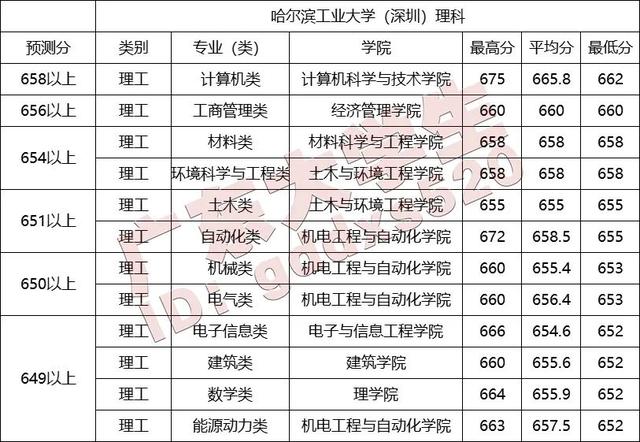语法中最难的虚拟语气应该怎么学(虚拟语气重难点分析)
英语虚拟语气重难点分析,读完这篇文章,你就明白虚拟语气用法!
虚拟语气为了体现与陈述、疑问、祈使语气的不同,使用两种形式来标志区别,即用与平时的谓语时态、动词形式不相同的形式表现出来,其时态形式一般要往过去时间对应地移一步。
一、虚拟语气,主要有4种类型:
1.表示纯假设(非真实条件)
2.表示请求
3.表示命令、要求、建议
4.表示愿望
谓语时态的错位:
对现在的假设:
If I accepted it, I would regret in future.
如果我(现在)接受它,我以后会后悔的。
现在时态 → 过去时态形式,将来时态 → 过去将来时
对过去的假设
If she had known it, she would not have made the mistake.
如果她早知道这件事,她就不会犯这错误了。
过去一般时 → 过去完成时, 过去一般将来时 →过去将来完成时
对将来的假设
If it should rain tomorrow, we would stay at home.
如果明天下雨,我们就会待在这。
将来一般时 → 过去将来一般时,将来一般时 →过去将来一般时
谓语动词不管人称、数的一致要求,统统一个样:
If they/I/he/we were you, …
He ordered that the barrier/barriers (should) be removed.
他命令那个/所有障碍要除掉。
Long live Mother! our parents! all the parents in the world!
母亲/我们的父母/天下所有的父母万岁!
Long live Mao!
毛主席万岁!

二、三种纯假设基本句型。
三种时间的纯假设基本句(以be, do, work为例):
注意:在If I were you中I只能接were,不能接was。但其他人称的代记后不管单复数都接were,单数也可接was.
1、非真实条件句。
表示与过去或者现在事实相反,或者对将来发生的可能性很小(或者不可通用)的情况的假设都属于纯假设,这时要用虚拟语气:
与现成事实相反:
If I were you, I would take the challenge.
如果我是你,我会接受挑战。
(事实上我不可能是你)
与过去事实相反:
If she had arrived 5 minutes earlier, she would have caught the train.
如果她早到5分钟,她就能赶上火车了。
(事实上没早到5分钟,也没赶上火车)
将来的可能性很小:
If it were to rain this afternoon, I would stay at my classroom.
如果今天下午下雨,我就会待在教室里。
(事实上今天下午下雨的可能性很小,我也不会待在教室里。)
2、错综时间条件句。
上面三种纯假设句型中的条件句和主句的谓语时间是相同的。有时条件句与主句的时间不是同一时间,比如条件句谓语动作发生在前,主句动作发生在后,主句的时态形式就需要根据具体情况作适当的调整:
If you had worked (过去) hard then, you would be(现在) a college student now.
如果你那时下了功夫,现在你就是大学生了。
如果不调整:
If you had worked(过去) hard then, you would have been(过去) a college student.
If he had not had the accident two days ago, he would be drinking with us at tomorrow’s party.
如果他(过去)两天前没有出事故,他(将来)在明天的聚会上就会同我们一起喝酒啦。
注意:
如果是真实条件句,即可能、完全有可能发生的事情,就不能用虚拟语气,要用一般的陈述语气:
If I get there early, I will give you a call.
如果我到那里还很早,我会给你电话。
(很可能的事情)
If it is fine tomorrow, we will go outing.
如果明天天晴,我们将去效游。
(很可能天晴)

3、含蓄条件句。
有些时候,不用条件句,而用一个词组、暗含的意思表示假设,这样的句子就是含蓄条件句。
用with, without等介词引导的介词词组,或者分词词组,独立主格结构代替条件句。
You wouldn’t have succeeded without their support.
=You wouldn’t have succeeded if they hadn’t supported you.
如果没有他们的支持,你们就不会成功了。
What would you do with 100,000 dollars?
如果你有10万美元,你会怎么花?
Having foreseen the storm, she wouldn’t have gone out.
要是预见到暴风雨要来,她就不会出去了。
除if外,还有一些连词能引导虚拟句。这些连词主要有:
in case万一
lest生怕
as if好像
unless除非
as through好像
on condition that条件是
otherwise否则
suppose(that)假设
but that要不是
provided/providing(that)如果
Take an umbrella with you in case it should rain.
带把伞去,万一会下雨。
The kid spoke as if he were a group-up.
那孩子说话真像个大人一样.
通过上下文的意思表示的虚拟句
She would have helped you, but she was too busy at the time.
她本来想帮你的,但她当时太忙。
I should have discussed with you, but I could not find you anywhere.
我本来应该同你商量的,但我到处找不着你。
有时单独用虚拟条件句可作感叹句或者疑问句
If only I could fly!
要是我能飞多好啊!
If only I were as tall as you!
要是我同你一样高多好啊!
What if she were dishonest?
如果她不诚实会怎么样?
虚拟条件句的省略和倒装
· 在书面语中(口语中极少)有时将虚拟条件句的if省去,将主语后的助动词(或者情态动词)移到主语前。
If we had finished earlier, we could have won the first place.
→Had we finished earlier, we could have won the first place.
如果我们早一点完成,我们就能获得第一名了。
If I should have the chance, I would try it.
→Should I have the chance, I would try it.
如果我有机会,我会试一下的。
If I were at college now, I would work very hard.
→Were I at college now, I would work very hard.
如果我现在在上大学,我会非常下功夫的。
2.表示请求的虚拟句
当人们表示很礼貌、客气、委婉的请求时,经常用虚拟句。
最常用的是would,could:
Would you do me a favor?
你帮我一个忙好吗?
Would you wait a while?
你稍等一会儿好吗?
Could you lend me five dollars?
你能借给我五美元吗?
Could you pass the bag to me?
你能把袋子递给我吗?
3.表示命令、要求、建议的虚拟句
这三种虚拟句中大多数用于宾语从句,也有少数用于其他场合:
(1)在下面几个表示命令、要求、建议的动词后面的宾语从句要用虚拟句:
order命令
suggest建议
desire想要
command指令
propose提议
insist坚持
demand要求
request要求
He ordered that all the troops (should) charge forward.
他命令所有部队冲锋。
She suggested that the child (should) get up at 9.
她建议小孩9点起床。
Tom insists that the wife do housework.
汤姆坚持要求妻子做家务。
(2)在suggestion,proposal, order, motion(动议), idea, plan, recommendation(推荐)等名词后面的表语从句和同位语从句一般用虚拟句:
My suggestion is that the price (should) be cut down in half.
我的建议是价格降低一半。
Here is his order that the second team replace the first one.
这是他的命令:第二队替换第一队。
(3)常用had better, could, would, might用于建议、劝告的虚拟句中:
You had better find out the truth.
你最好弄清楚实情。
You could save much time this way.
这样你能节省大量时间。
It would be a bad plan to divide the school.
把学校分开是一个糟糕的计划。
(4)在It is suggested (ordered, proposed, requested, important, desired, necessary,decided, strange, funny, surprising)后面的主语从句一般要用虚拟语气。
It is suggested that the old house (should) be sold out.
有人建议把旧房子卖了。
It is necessary that everyone be present.
每个人到场是必要的。
It was strange that he should have failed in the exam.
真奇怪他竟然会考试不及格。

4.表示愿望的虚拟句
(1)表示祝愿(含咒骂),会用动词原形(不管人称、单复数):
Long live Mother!
母亲万岁!
God bless you all, children!
上帝保佑你们所有的人,孩子们!
Heaven help us.
上天保佑我们。
So be it then!
那么就这样吧!
God) Dam it!
该死的!
(2)由may引导的祝愿:
May our friendship last forever!
祝我们的友谊天长地久!
May you be lucky all your life!
祝你一辈子幸运!
May our children grow healthily!
祝我们的孩子健康成长!
(3) would rather, wish后的宾语从句要用虚拟语气:
I wish my mother were with me.
我希望我母亲同我在一起。
I wish the problem could be solved in one day.
我希望这问题能在一天内解决。
We would rather that you were on the campus.
我们希望你住在校园里。
注意:
wish后的宾语从句表示不可能实现的愿望,必须用虚拟语气。而hope后的宾语从句表示可能实现的愿望,不能用虚拟语气:
她希望明年参军。
√She hopes that she will join the army next year.
×She hopes that she would join the army next year.
希望此文能帮到大家学习!
,免责声明:本文仅代表文章作者的个人观点,与本站无关。其原创性、真实性以及文中陈述文字和内容未经本站证实,对本文以及其中全部或者部分内容文字的真实性、完整性和原创性本站不作任何保证或承诺,请读者仅作参考,并自行核实相关内容。文章投诉邮箱:anhduc.ph@yahoo.com






